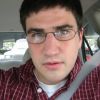7 Editing Books That Separate Experts from Amateurs
Recommended by Daniel Summers, Yashar Ali, and Adam Horowitz — top voices in Editing Books






What if I told you that mastering editing isn’t just about knowing grammar rules, but about learning the craft from those who’ve shaped words and stories across mediums? Editing sits at the crossroads of language precision and storytelling impact, demanding both technical skill and artistic sensibility. From print to screen, the power of a cut, the clarity of style, and the flow of narrative all hinge on expert editorial choices.
Names like Daniel Summers, a pediatrician with a sharp journalistic eye, and Yashar Ali, a contributor to New York Magazine and HuffPost, have praised works that blend clarity and wit in editing. Meanwhile, filmmaker Adam Horowitz found fresh inspiration in an Oscar-winning editor’s memoir, revealing how editing shapes cinematic history. These voices highlight books that not only teach rules but open windows into the nuanced art of editing.
While these expert-curated books provide proven frameworks, readers seeking content tailored to their specific experience levels, industries, or editing goals might consider creating a personalized Editing book that builds on these insights, delivering a learning path as unique as your ambitions.
Recommended by Journal Of Electronic Publishing
“For those looking to learn or reference the Chicago formatting and citation styles, The Chicago Manual of Style will always be the go-to resource. Despite each new edition’s growth in length and changes in content, the volume remains the same: the definitive—and only—guide to Chicago style. Given the print volume’s size and weight, the online version, with its additional features—many of which are freely available—is a good alternative for both brief and dedicated users who want portable access to the manual or want to move beyond the content to engage with The Chicago Manual of Style community.” (from Amazon)
by The University of Chicago Press Editorial Staff··You?
by The University of Chicago Press Editorial Staff··You?
The University of Chicago Press Editorial Staff brings decades of editorial expertise to this seventeenth edition, reflecting the evolving landscape of publishing and communication. You’ll find updated guidance on digital workflows, citation formats for electronic sources like social media and apps, and expanded sections on grammar and inclusive language. The manual also revises punctuation and citation rules to suit both traditional and self-publishing contexts, making it a precise tool whether you’re refining academic papers or managing open access projects. This edition suits anyone invested in mastering the details of style and citation as they adapt to today’s diverse publishing platforms.
Recommended by Daniel Summers
Pediatrician with broad journalistic experience
“As I have never tired of telling people, it is an utter delight to read. You won’t find a book that is as perfectly informative and charming in equal measure as this one.” (from X)
by Benjamin Dreyer··You?
by Benjamin Dreyer··You?
Drawing from over two decades as Random House's copy chief, Benjamin Dreyer offers a guide that breaks down the quirks and rules of English with wit and clear expertise. You’ll explore topics like punctuation nuances—from semicolons to en dashes—and the flexible grammar rules that let you start sentences with conjunctions or split infinitives confidently. Dreyer also critiques overused phrases and intensifiers, helping you sharpen your prose by avoiding fluff like "very" or "actually." This book suits anyone who writes regularly and wants to polish their style with precise, often surprising insights, especially those who edit or shape text professionally.
This tailored book on editing mastery explores proven techniques and nuanced approaches to elevate your editorial skills. It delves into the art and craft of editing, covering essential topics from structural clarity to stylistic finesse, all while focusing on your interests and goals. By matching your background and specific needs, this book reveals how to refine content for both precision and impact, addressing challenges unique to your editing journey. The personalized focus allows you to navigate complex editorial decisions with confidence and deepen your understanding of how expert editors shape flawless narratives. Crafted to suit your unique goals, it offers a focused learning experience that bridges expert knowledge with your personal development.
by Amy J. Schneider··You?
by Amy J. Schneider··You?
Amy J. Schneider’s decades of experience as a fiction copyeditor inspired this focused guide tailored specifically to novelists and editors working in narrative fiction. You’ll gain detailed insights into managing continuity in characters and settings, refining dialogue, and addressing grammar while respecting an author’s voice. The book unpacks unique challenges fiction editors face, like tracking fictional details across complex stories, with practical solutions drawn from Schneider’s extensive work on bestsellers. It’s ideal if you want to deepen your editing skills within fiction’s distinct demands rather than general nonfiction style guides.
Recommended by Adam Horowitz
Former vendor at Yankee Stadium
“@LexG_III From Paul Hirsch’s book... worth a read, I think... just started it, about halfway through. Lotsa great stories.” (from X)
by Paul Hirsch··You?
Paul Hirsch's decades-long career as an Oscar-winning film editor informs this detailed exploration of Hollywood's most iconic movies. Drawing on his work with Star Wars, Carrie, and Ferris Bueller's Day Off, Hirsch offers you a rare glimpse into the editing choices that shape storytelling on screen. Beyond editing techniques, he shares insights into collaboration with directors, casting, and scoring, enriching your understanding of filmmaking as a whole. If you want to deepen your grasp of cinematic narrative craft and the editor's role in shaping film history, this book offers both rich anecdotes and practical perspectives.
Recommended by Chris Addison
Former spy with creative background
“@Thievesbook @JonLefkovitz @clarestronge @NeilKBrand @tagz23 His book, 'The Blink of An Eye' about film editing is absolutely fascinating.” (from X)
by Walter Murch, Francis Ford Coppola··You?
by Walter Murch, Francis Ford Coppola··You?
Walter Murch's decades of film editing and sound design experience culminate in this insightful essay exploring why cuts work in cinema. You’ll gain a deeper understanding of editing principles such as continuity versus discontinuity, the emotional impact of the eye's blink as a cue, and the evolving role of digital editing technology. The book offers concrete examples including reflections on classic films like Apocalypse Now and The Godfather, helping you grasp both aesthetic choices and practical techniques. If you’re involved in filmmaking or curious about how editing shapes storytelling, this book will expand your perspective without unnecessary jargon or fluff.
by TailoredRead AI·
This personalized book explores a tailored 30-day plan designed to boost your editing efficiency and precision. It covers essential editing techniques and practical daily exercises that match your specific background and goals, helping you enhance your skills steadily and confidently. By focusing on what matters most to you, it reveals ways to sharpen your eye for detail and refine your editorial judgment with a clear, paced approach. This book bridges expert knowledge with your personal learning needs, offering a custom pathway through complex editing concepts and daily practice. It’s crafted to engage and support your journey toward becoming a more effective and thoughtful editor.
by Donald H. Cunningham, Edward A. Malone, Joyce M. Rothschild··You?
by Donald H. Cunningham, Edward A. Malone, Joyce M. Rothschild··You?
Donald H. Cunningham, Edward A. Malone, and Joyce M. Rothschild bring decades of academic and professional expertise to this thorough guide on technical editing. You learn how to critically appraise documents, develop editing plans, and execute substantive and copyediting tasks with precision. The book digs into nuanced topics like workplace ethics, digital navigation aids, and international English variations, all framed within practical editing workflows. Whether you're refining grammar or managing content systems, this text suits professionals aiming to sharpen their editing craft in technical fields.
by The Associated Press··You?
by The Associated Press··You?
Drawing from its extensive legacy as a major news cooperative, The Associated Press crafted this stylebook to codify the principles that shape clear and consistent journalism. You learn how to navigate tricky grammar, punctuation, and word usage while applying the AP's distinct style that newsrooms rely on globally. The book breaks down nuances like when to use "more than" versus "over" and offers a detailed index to swiftly find guidance on topics from capitalization to numeral usage. If you write or edit news, or aspire to join that world, this guide sharpens your precision and helps uphold journalistic standards that matter in fast-paced environments.
Get Your Personal Editing Strategy in 10 Minutes ✨
Stop following generic advice. Get editing tips tailored to your skill level and goals instantly.
Trusted by top editing professionals worldwide
Conclusion
These seven books showcase editing as a multifaceted discipline — from the precision of style manuals to the nuanced art of film editing. If you’re grappling with mastering style and citation, start with The Chicago Manual of Style, 17th Edition; for polishing prose, Dreyer's English offers a witty yet exacting guide. Film enthusiasts will find A Long Time Ago in a Cutting Room Far, Far Away and In the Blink of an Eye invaluable for cinematic storytelling.
For those in journalism, the Associated Press Stylebook sharpens newsroom editing skills, while Technical Editing equips workplace editors with practical workflows. Fiction editors will benefit from The Chicago Guide to Copyediting Fiction, which tackles the unique challenges of narrative continuity and voice.
Alternatively, you can create a personalized Editing book to bridge the gap between general principles and your specific situation. These books can help you accelerate your learning journey, guiding you to edit with confidence and precision.
Frequently Asked Questions
I'm overwhelmed by choice – which book should I start with?
Start with The Chicago Manual of Style, 17th Edition if you want a solid foundation in style and citation. It’s widely respected and covers essentials that all editors need to know.
Are these books too advanced for someone new to Editing?
Not at all. While some books dive deep, others like Dreyer's English present clear, engaging guidance perfect for beginners and seasoned editors alike.
What’s the best order to read these books?
Begin with style guides like The Chicago Manual of Style and Associated Press Stylebook for basics, then explore specialized texts like The Chicago Guide to Copyediting Fiction or film-focused books for niche skills.
Can I skip around or do I need to read them cover to cover?
You can definitely skip around. Many of these books serve as references you’ll return to for specific topics or challenges, making them flexible tools for your editing needs.
Which book gives the most actionable advice I can use right away?
Dreyer's English offers practical tips on clarity and style that you can immediately apply to improve your writing and editing.
How can I tailor these expert editing books to my specific needs or industry?
Great question! These books provide solid foundations, but personalized content can bridge the gap to your unique context. Consider creating a personalized Editing book that adapts expert insights to your background, goals, and subtopics for targeted learning.
📚 Love this book list?
Help fellow book lovers discover great books, share this curated list with others!
Related Articles You May Like
Explore more curated book recommendations






